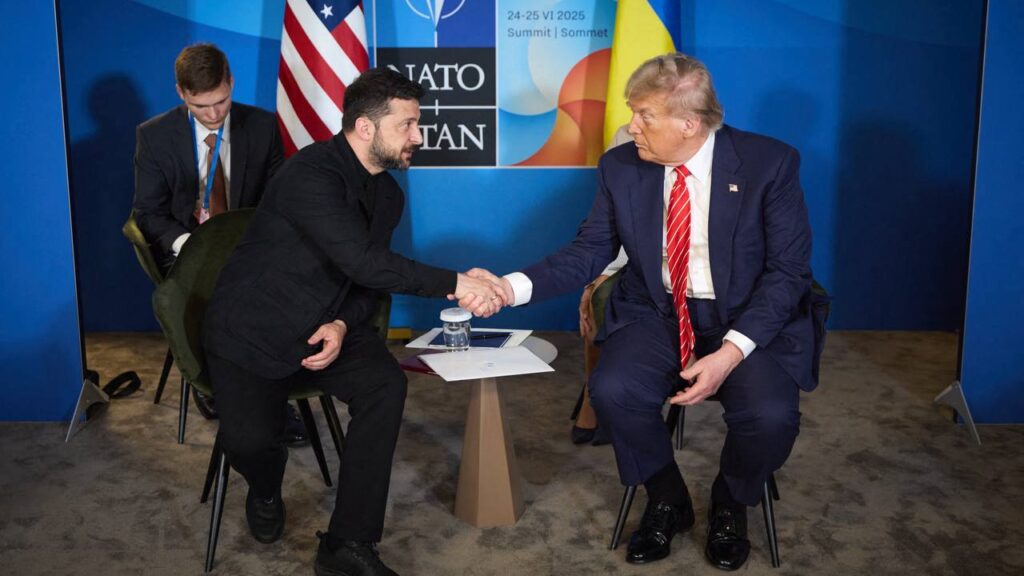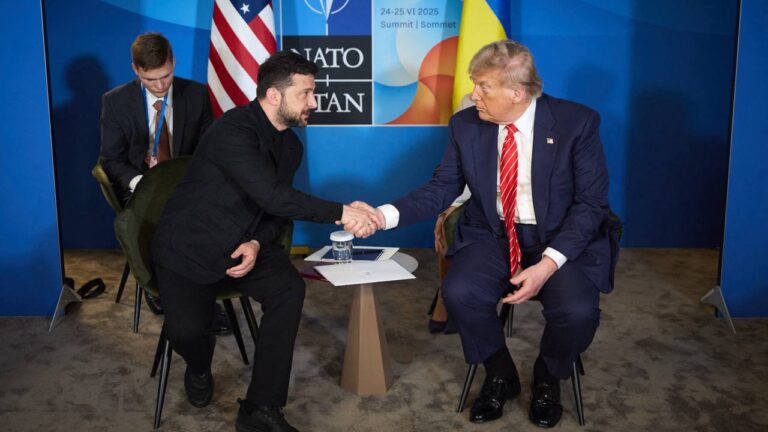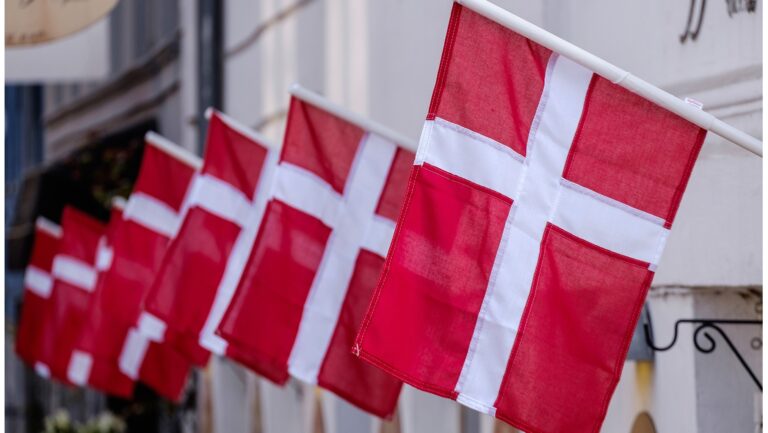One of the major illusions of the regime-change years of 1989–1990—cherished not only by political actors—was that Hungary, within months of the peaceful political transition, and certainly no later than by the end of the first term of its new government, would surely make up for the five decades of dictatorship and catch up with the Western world. At the time, the majority of Hungarian people looked to the West full of hope, but I am now convinced that it is currently the West that looks to us more and more often, thanks to our ability to create new blueprints. In May 2022, Budapest once again became the centre of the conservative world, hosting the Conservative Political Action Conference (CPAC) in Europe for the first time, an event organized jointly by the American Conservative Union (ACU) and the Center for Fundamental Rights. With CPAC Hungary, we have demonstrated not only that strength continues to be in unity, but also that a conservative response offering common-sense solutions to twenty-first-century challenges is available and clearly distinguishable from the alternatives proposed by progressives.
Hungary has been receiving special attention in the international arena since the beginning of the second decade of the twenty-first century. Four consecutive election victories, in an era when Europe can hardly boast of stability, a right-wing renaissance in the heart of Central Europe, and a conference inviting conservatives to Budapest from the world over—we find ourselves now in a truly exceptional situation for quite a number of reasons. Hosting CPAC Hungary also confirms that we are on the right track, proceeding on a path we have chosen for ourselves. Hosting CPAC means recognition and esteem: not only are we increasingly influential in Europe, our efforts are also appreciated on the other side of the ocean, and there is more that ties us together than that may divide us. Accordingly, the fact that we had the opportunity to organize the first European CPAC in Budapest means an acknowledgement of the nation-building and community-building accomplished by the Hungarian right over the last decade. President John Kennedy—a Democrat who would most probably vote Republican today—said many years ago that ‘We choose to go to the Moon in this decade and do the other things, not because they are easy, but because they are hard’. And we are grateful for our American friends’ decision, since this is what made it possible for the Hungarian right wing’s fourth consecutive two-thirds majority victory to be seen even from the moon.1
We offered inspiration, good spirit, new ideas, and a recipe for political success for conservative communities around the world
Four months have passed since the two-day CPAC Hungary conference on 19 and 20 May, and we are now in a position to declare that we did successfully hit the target, and perhaps accomplished even more than was intended. We offered inspiration, good spirit, new ideas, and a recipe for political success for conservative communities around the world. The public could learn of the latter from the most authentic source, as Viktor Orbán, having formed his fifth government, was on this occasion the keynote speaker at CPAC. In his speech, the prime minister described the struggles of the last decade as follows:
‘The plan succeeded. In 2010, we came back. We had worked for eight years: step by step, brick by brick, we had fought and we had built. Theformula is complete. Hungary is the laboratory in which we tested the antidote to dominance by progressives. We have hung up our lab coats, this spring Hungary has received its fourth dose, and I can report the following: the patient has been completely cured. The medication is open-source, free of charge, and comprises twelve points.’
These are the following:
‘1) We have to play by our own rules.
2) National conservatism in domestic politics.
3) The national interest in foreign policy.
4) We must have our own media.
5) Expose your opponent’s intentions.
6) Economy, economy, economy.
7) Do not get pushed to the extreme.
8) Read every day.
9) Have faith.
10) Make friends.
11) Build communities.
12) Build institutions.’
These ‘twelve points’ have since taken on a life of their own; their content and proposals have been made available for all of us to digest. Most recently, at one of the most successful CPAC conferences of South America, CPAC Brazil, participants also tried to find the secret of successful governance. However, perhaps the main question regarding the hosting of CPAC was why exactly it is important to organize such a political jamboree. There are several reasons. First, the conservative side—moderate movements with respect for tradition, rejecting the progressive ideology, inside and outside of Europe—has at last understood that it needs to build alliances, or even networks. One thing is certain: advocates of liberal ideology began to do so earlier than those who believe in the gradual approach. If there is someone who understands the significance of this, it is us Hungarians. Viktor Orbán’s tenth point is, ‘Make friends’. This is exactly what we are doing now on the right: we are trying to bring the forces of common sense under a single flag, thereby multiplying our strength and enhancing our network. Seeing the impressive list of speakers at CPAC Hungary, we can state that there is tremendous demand for this union within the conservative camp.

Another reason is our ability to create new blueprints and patterns. One frequently asked question is what the difference is between left-wing and right-wing politics. And it is often asked where the dividing line is between the working out of strategies and the political tactics of the two sides. The attitude of a maker of new patterns and that of the follower of patterns are certainly very different. While the Hungarian national government, which has a centre-right character, often attempts to implement solutions which appear unorthodox, the internationalist left seeks again and again to adopt global trends.
This is demonstrated by an example which has been cited many times in recent years, a real classic. The migrant crisis of 2015 was a major shock for Europe. Just recently, the Center for Fundamental Rights published the Hungarian translation of Jean Raspail’s novel, The Camp of the Saints, which predicted in the 1970s what would happen to Europe after the turn of the millennium. Paralysis, an overwhelming media campaign, controlled public opinion, leaving no room for dissenting opinion—this is what happens in the novel when about one million immigrants disembark at the French Riviera and set out to conquer the continent. And what happened after 2015? Hungary immediately recognized the civilizational challenge of illegal migration. Western Europe, by contrast, was gripped by a fever of admission. What did the left say in Hungary? It repeated the slogans that were chanted by its international allies. And what did the Hungarian right do? It kept the national interest in focus and said no to uncontrolled mass immigration. We all know who had it right.
The third reason is self-evident: since 2010, the policies advocated by Fidesz–KDNP have won a two-thirds mandate from voters at four consecutive democratic elections, all of which were free and fair. This is unique not only in Hungary, but on the world stage as well, and is an unprecedented political accomplishment. Opponents are flabbergasted; and since they are in torment, they call the whole Hungariandemocratic system a lot of things, to put it mildly. Unfortunately, they often take things further than that: they take the liberty of insulting large groups of voters. They also deliver threats, and advocate the obliteration of the right, under the pretext of campaigning. But they fail to realize that by doing so they have been shooting themselves in the foot, for at least four consecutive terms now. This, despite the fact that the conditions before the 2022 election were those opposition strategists had been dreaming of: the coalition of the far left and the far right had been forged, the alliance of the successors to the Communist Party and the fascist Arrow Cross Party had been created as the result of long years of common efforts. Thus, a single left-wing opposition candidate faced the Fidesz–KDNP candidate in each of the 106 individual constituencies, and the opposition had a joint national list. Then what happened on 3 April, on election day? The left–liberal opposition suffered the worst defeat in its history. They lost seven hundred thousand sympathizers, while the political right became the most successful political community in the history of Hungary; after twelve years in power, its popularity actually increased. Furthermore, the child protection referendum has shown that the right still has reserves: there were at least half a million voters who sided with the government on this pivotal issue. The renaissance of the political right in the Carpathian Basin, then, can be prolonged with relentless hard work for many years to come.
Our American friends are fighting the same battles with the federal administration as we are with the Brussels bureaucracy
It is because of all this that we had the opportunity to host CPAC. In the years before 2010, all this would have been simply inconceivable. The appalling developments in domestic politics during the period between 2002 and 2010 made Hungary the laughing stock of Europe, and perhaps outside of it too. The country was on the verge of bankruptcy when we started to implement radical changes in 2010, and ensured the fundamental preconditions for a fresh start: a national consensus. Twelve years ago we drove the post-communists out of power, and opened a new chapter in the history of Hungary. Since then, we have turned the country from a laggard into a front-runner: the Hungarian economic model, job creation via low taxes, linking family support instruments to lawful employment, and our stance against federalist aspirations have all been of interest to American conservatives for quite some time now. Our American friends are fighting the same battles with the federal administration as we are with the Brussels bureaucracy: they are part of a union, the centre of which wants to intervene in more and more issues which are currently within the competence of states. What is more, the tendencies are also similar: at first, only economic issues and some other policy issues are put on the agenda, and then, built on those, issues of social policy, and finally, issues of ideology. Recent major disputes in the US between states and the Biden administration concerned parents’ rights, which strongly resonates with the child protection issue in Hungary. They can see it in America, but in Europe, too, that Hungary is again defending Western civilization—this time, however, the West needs to be saved from itself.
And this is what CPAC Hungary was about: it was pointed out that common sense and the Creator must not be contradicted. It was no accident that we selected the following three words as the motto of CPAC Hungary: ‘God, Homeland, Family’. This is us, this is what we believe in, and this is what we are proud of: the Judeo-Christian tradition of our civilization, the preservation of our national identity and sovereignty, and the protection of our families and children. But all this is currently exposed to multiple threats. A political practice which portrays itself as altruistic, but in fact stifles all dissenting opinions, has launched attacks on all fronts, targeting everything we believe in, as well as the freedom of speech, common sense, and the laws of nature. At the time when a brutal war is raging in our neighbourhood, when the Western world should be standing firmly together and strengthening its cohesion, representatives of the network of advocates of the open society are bogged down in self- centred and futile ideological battles, trumped- up rule-of-law procedures and reports, or carving into stone, officially, that men can also give birth. The Hungarian political right—by its conscious effort to go against the mainstream, by breaking up post-communist structures, by promoting the national interest as the top priority, and by rejecting the globalist ‘woke’ culture—has become a prominent actor in the Western conservative camp. The right in Hungary refuses to share the fate of the European centre-right, which has surrendered to the left and has therefore become insignificant; it is determined to prevent the totalitarian spirit, which is the fruit of the marriage of progressivism and socialism, from prevailing in Hungary as well.
We can even feel gratitude towards the peddlers of progressivism, for they are really overdoing it: they want to sit on our necks, including our children’s necks, with such assertiveness that it triggers an instinctive adverse reaction among people who are committed to their faith, their homeland, and their families. The sort of people who were called ‘deplorable’ by Hillary Clinton, and ‘stupid’ by the similarly defeated prime ministerial candidate of the Hungarian left.
A Hungarian model does exist, and is worth presenting to other conservative communities out there as an example to learn from
CPAC Hungary proved that conservatives the world over are committed to the defence of traditional values. They are fighting for the survival of God, Homeland, Family. With the people’s support and God’s permission, the Hungarian right has been able to be engaged in that fight in the decision-maker’s position for twelve years so far. A Hungarian model does exist, and is worth presenting to other conservative communities out there as an example to learn from. They just have to open the Constitution of Hungary, where it clearly states that ‘we hold that the family and the nation constitute the principal framework of our coexistence, and that our fundamental cohesive values are fidelity, faith and love’.
Indeed, Hungarian conservatives realized that democracy is not necessarily liberal. On the contrary, it is currently the liberals from whom freedom must be protected. We do want to have the freedom of being proud of our nation, we do want to make our own decisions on defending our borders, we do consider marriage to be a covenant between a man and a woman, and we do demand freedom for parents to choose what kind of sexual education should be provided to their children. We reject ‘cancel culture’ and gender ideology, and we stand up against the excesses of woke-ism. We are, in fact, today’s rebels. We are rebels because we start families against the zeitgeist, and we believe that the basis of human dignity is work. We are patriots, who fight courageously—with perseverance and outspokenness—to keep Hungary the way we know and love it: a Hungarian country. Let us simply speak our minds, firmly: ours is one of the most successful political communities of the Western world at the moment, which should also give hope to national conservative forces on our continent as well as overseas.
It is thanks to precisely this attitude that Hungary can serve as an example for other conservative communities around the world. For the good example to catch on, however, we should refrain from complacency, or thinking that our work is done. We must not rest on our laurels. Instead, it is necessary to concentrate on how we should continue. Our goal remains the same: to build and buttress a community, and to make it successful. CPAC came to Europe in 2022 for the first time, and we would like to ensure that it was not the last time.
Let us have no doubt, the globalist neo-Marxist–liberal elite is frustrated by the success of the right in Hungary. What is more, we are in the best shape ever. Let us keep in mind that together we are strong, but if we are alone, we may perish. Despite the geographical distances, it should be clear that we are fighting the same battles, trying to meet the same challenges, in Europe and beyond. At CPAC Hungary, however, we managed to formulate common responses to the challenges of the present. And so the nightmare of the left–liberal tandem may come true at last, something they said was just impossible: the international alliance of national conservative forces.
Translated by Balázs Sümegi
1 Allusion to the speech of Viktor Orbán who declared after the electoral victory of his party on 3 April 2022: ‘We won a victory so big that it can be seen even from the Moon.’








